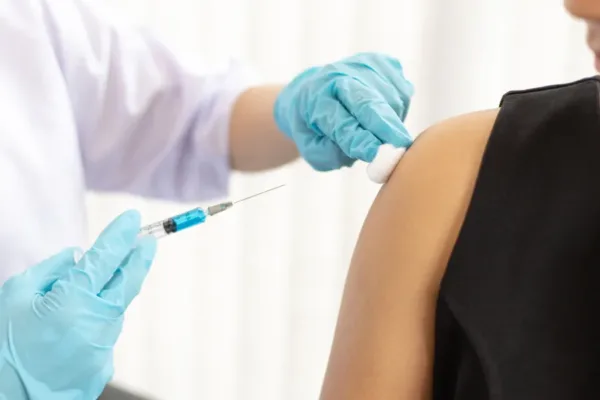 Infections are a common health concern that most of us encounter at some point. While primary care physicians can effectively manage many cases, certain infections require specialized expertise. This is where Infectious Disease (ID) Specialists come in. These experts are called upon when infections become complex or resistant to standard treatments. Recognizing the right time to consult an ID Specialist can significantly impact the effectiveness of your treatment and speed up your recovery process. Their specialized knowledge can be crucial in navigating challenging cases and ensuring the best possible outcome for patients facing difficult infections.
Infections are a common health concern that most of us encounter at some point. While primary care physicians can effectively manage many cases, certain infections require specialized expertise. This is where Infectious Disease (ID) Specialists come in. These experts are called upon when infections become complex or resistant to standard treatments. Recognizing the right time to consult an ID Specialist can significantly impact the effectiveness of your treatment and speed up your recovery process. Their specialized knowledge can be crucial in navigating challenging cases and ensuring the best possible outcome for patients facing difficult infections.
What Is an Infectious Disease Specialist?
An Infectious Disease Specialist is a doctor with advanced training in diagnosing, managing, and treating complex infections. These specialists handle cases ranging from common infections that resist treatment to rare illnesses contracted during travel. Their expertise ensures patients get the right diagnosis and treatment, especially in complex cases.
Conditions Treated by Infectious Disease Specialists
ID specialists treat a wide range of infections, including:
- Persistent or chronic infections (HIV, hepatitis B & C)
- Severe bacterial or viral infections (pneumonia, meningitis)
- Antibiotic-resistant infections
- Travel-related diseases (malaria, dengue)
They aim to manage infections that don’t respond to standard treatment and prevent complications from worsening.
When Should You See an Infectious Disease Specialist?
 Not every infection needs an ID specialist, but certain signs indicate you may need to seek their expertise. Here’s when to consider seeing one:
Not every infection needs an ID specialist, but certain signs indicate you may need to seek their expertise. Here’s when to consider seeing one:
1. Recurrent or Persistent Infections
If you’re facing infections that keep returning or never seem to fully clear up, an ID specialist can identify the underlying cause and tailor a more effective treatment plan. This includes recurrent urinary tract infections (UTIs) or respiratory infections.
2. Antibiotic-Resistant Infections
Over time, some infections may become resistant to antibiotics, making them harder to treat. ID specialists are trained to deal with drug-resistant bacteria like MRSA or multi-drug-resistant tuberculosis (TB). They can offer alternative treatments or combinations of medications.
3. Travel-Related Illnesses
If you’ve recently traveled abroad and developed an unexplained illness, an ID specialist can help. Symptoms of tropical diseases such as malaria, dengue, or typhoid fever might not appear immediately, and standard treatments may not work. ID specialists know how to diagnose and manage these complex diseases.
4. Chronic Infections Like HIV or Hepatitis
Long-term conditions like HIV or hepatitis B and C require continuous management to prevent complications. Infectious Disease Specialists treat these conditions and offer preventive care to avoid worsening the illness or spreading it to others.
5. Unexplained Fevers and Symptoms
Have you had a fever for several days with no clear cause? This could signal a hidden infection that needs special attention. Infectious Disease doctors can use their expertise to pinpoint the source of the issue, whether it’s a rare infection or something common but overlooked.
How Do ID Specialists Work With Other Doctors?
 ID specialists often work alongside your primary care physician or other specialists to offer the most comprehensive care. They can consult on difficult-to-treat infections, help interpret lab results, and recommend advanced treatments like IV antibiotics or specialized antiviral medications.
ID specialists often work alongside your primary care physician or other specialists to offer the most comprehensive care. They can consult on difficult-to-treat infections, help interpret lab results, and recommend advanced treatments like IV antibiotics or specialized antiviral medications.
Collaborative Care
- Consulting with your primary care provider
- Coordinating with other specialists for long-term conditions like HIV
- Providing expertise on infections related to surgery or hospital stays (hospital-acquired infections)
They ensure that every aspect of the infection is managed for the best possible outcome.
How Are Infections Diagnosed and Treated by ID Specialists?
Once you’ve been referred to an ID specialist, they will review your medical history and may run several tests, including:
- Blood cultures to detect infections in the bloodstream
- Imaging tests (X-rays, CT scans) to locate the source of the infection
- Lab tests to determine the type of infection and its resistance to certain treatments
Advanced Treatment Options:
Depending on the diagnosis, the specialist might recommend:
- Targeted antibiotic therapies
- Intravenous (IV) treatments administered in an outpatient setting
- Vaccinations to prevent future infections
- Antiviral medications for chronic conditions like HIV
ID specialists can offer treatments tailored to your condition by focusing on the specific infection and its underlying causes.
When Should I Ask My Doctor for a Referral?
 If you’re unsure whether your infection requires an ID specialist, consider talking to your primary care doctor if:
If you’re unsure whether your infection requires an ID specialist, consider talking to your primary care doctor if:
- Your symptoms persist despite treatment
- You have frequent or recurrent infections
- You have a compromised immune system (HIV, cancer)
- You’ve recently traveled and feel unwell
- You’ve been diagnosed with a complex infection (Hepatitis C, tuberculosis)
Early consultation with an ID specialist can prevent complications and ensure faster recovery.
How to Prepare for Your Appointment
If you’ve been referred to an Infectious Disease Specialist, it’s important to be prepared. Bring the following with you:
- A list of symptoms and any previous treatments
- Travel history, especially if you’ve been abroad recently
- Medical records, including any lab results or imaging tests
- A list of medications you’re currently taking
Take Control of Your Health
Infectious Disease Specialists play a critical role in managing difficult and complex infections. If you’re experiencing any of the symptoms or conditions mentioned, don’t hesitate to seek the help you need.
Contact Infectious Diseases Consultants to schedule a consultation with our experienced team for expert care in managing infectious diseases. Together, we’ll find the right solution for your health.
Latest News





